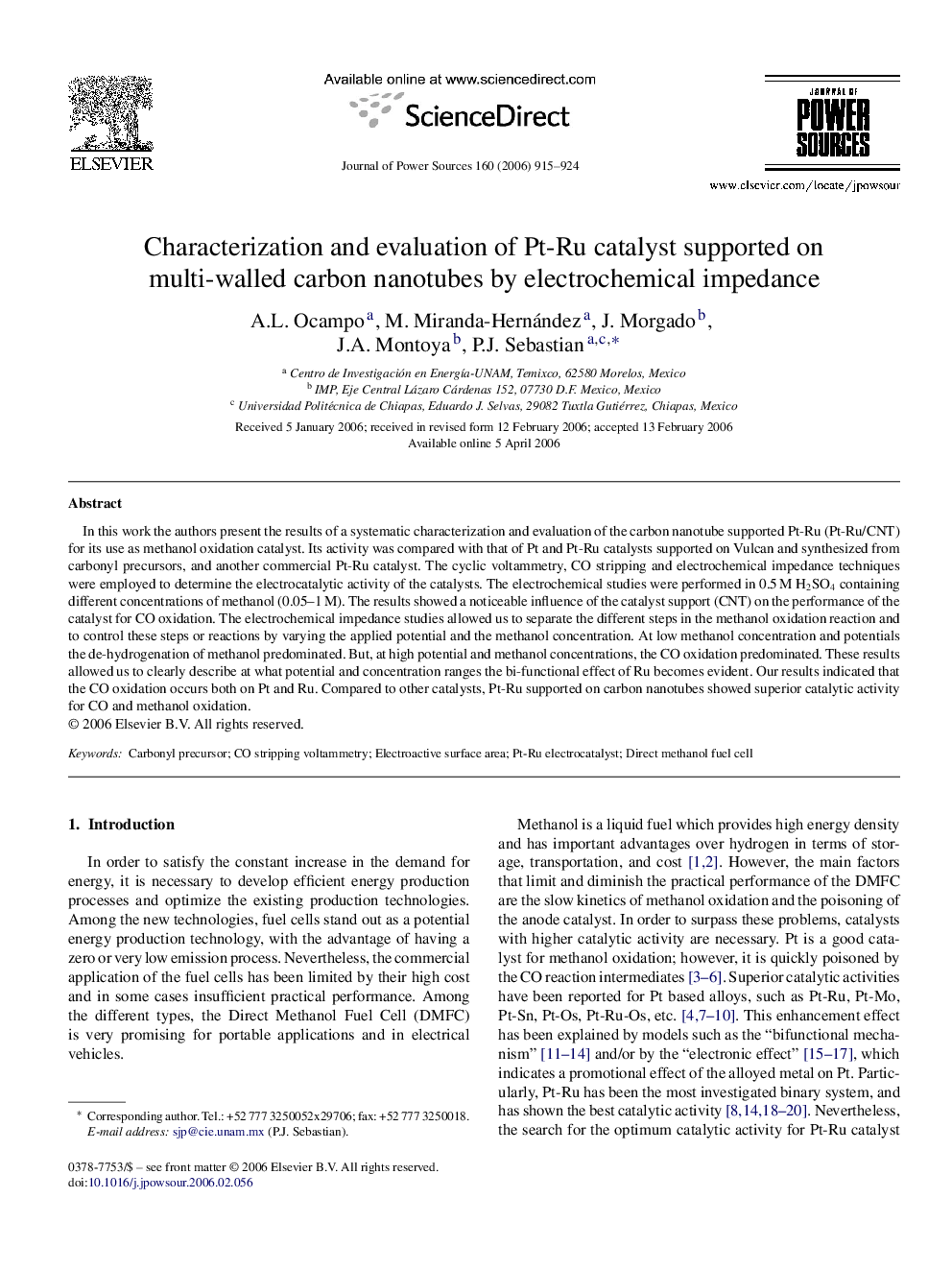| Article ID | Journal | Published Year | Pages | File Type |
|---|---|---|---|---|
| 1287146 | Journal of Power Sources | 2006 | 10 Pages |
In this work the authors present the results of a systematic characterization and evaluation of the carbon nanotube supported Pt-Ru (Pt-Ru/CNT) for its use as methanol oxidation catalyst. Its activity was compared with that of Pt and Pt-Ru catalysts supported on Vulcan and synthesized from carbonyl precursors, and another commercial Pt-Ru catalyst. The cyclic voltammetry, CO stripping and electrochemical impedance techniques were employed to determine the electrocatalytic activity of the catalysts. The electrochemical studies were performed in 0.5 M H2SO4 containing different concentrations of methanol (0.05–1 M). The results showed a noticeable influence of the catalyst support (CNT) on the performance of the catalyst for CO oxidation. The electrochemical impedance studies allowed us to separate the different steps in the methanol oxidation reaction and to control these steps or reactions by varying the applied potential and the methanol concentration. At low methanol concentration and potentials the de-hydrogenation of methanol predominated. But, at high potential and methanol concentrations, the CO oxidation predominated. These results allowed us to clearly describe at what potential and concentration ranges the bi-functional effect of Ru becomes evident. Our results indicated that the CO oxidation occurs both on Pt and Ru. Compared to other catalysts, Pt-Ru supported on carbon nanotubes showed superior catalytic activity for CO and methanol oxidation.
